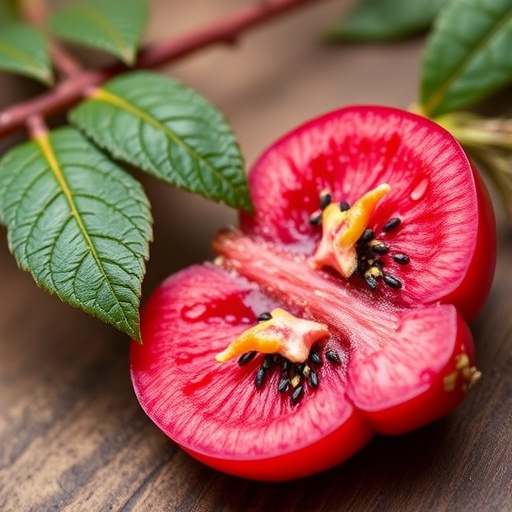In recent years, the focus on natural remedies for chronic diseases, particularly diabetes, has gained momentum globally. Specifically, a significant study conducted by researchers from Indonesia sheds light on the remarkable potential of selected medicinal plants utilized by the Sundanese community in West Java for their anti-diabetic properties. This newfound recognition of traditional medicine stems from a growing interest among health professionals and researchers in understanding the biochemical mechanisms through which these plants operate. With insights into their therapeutic applications, the study opens up avenues for alternative treatments that complement conventional diabetes management.
Diabetes, a condition characterized by elevated blood sugar levels, has reached epidemic proportions worldwide. Despite advancements in modern medicine, managing this chronic ailment remains a challenge for millions. The complications associated with diabetes are well-documented, leading to a pressing need for innovative approaches that address the root causes of the disease. The Sundanese, an ethnic group in Indonesia, have relied on local flora for generations to manage health issues, especially diabetes. The researchers aim to explore these traditional remedies through scientific inquiry, hoping to validate their efficacy and potentially integrate them into broader healthcare practices.
Central to the research is the examination of enzymes critical to carbohydrate metabolism: alpha-amylase and alpha-glucosidase. These enzymes play vital roles in the breakdown of complex carbohydrates into simpler sugars. Understanding the inhibition of these enzymes is crucial, as it can lead to a reduction in the postprandial increase in blood glucose levels. The study meticulously outlines how selected medicinal plants inhibit these enzymes, offering an exciting perspective on how traditional knowledge aligns with modern scientific understanding.
The selection of plants was not arbitrary; it was based on ethnobotanical knowledge that identifies flora traditionally associated with diabetes treatment. Researchers meticulously cataloged these plants, evaluating them for their biochemical properties and antioxidant potential. Antioxidants are vital in combating oxidative stress, a significant factor contributing to diabetes-related complications. By combining traditional usage with modern scientific techniques, the researchers aimed to provide a comprehensive analysis of these plants’ potential health benefits.
As part of their methodology, the researchers employed various assays to evaluate the inhibitory effects of the selected plants on both alpha-amylase and alpha-glucosidase enzymes. The results were promising, indicating that certain plants exhibited significant inhibitory activity. This finding is crucial as it validates the historical use of these plants in folk medicine, thereby merging empirical wisdom with scientific validation. Such complementary insights could lead to the development of herbal medications catering specifically to diabetes management.
One of the standout findings of the study was the antioxidant capacity of these plants, which were shown to scavenge free radicals effectively. The detrimental effects of oxidative stress are well-known in diabetic patients, where increased levels of oxidative damage accelerate the disease’s progression. By highlighting the antioxidant properties of these medicinal plants, the researchers offer a potential dual-action approach: inhibiting carbohydrate metabolism while simultaneously protecting cellular integrity. This multifaceted benefit positions these plants as valuable tools in the fight against diabetes.
The implications of this research extend beyond academic interest. For the Sundanese community and potentially others worldwide, this study represents a step towards the recognition and incorporation of traditional remedies into mainstream healthcare practices. As global health systems increasingly turn to integrative approaches, the findings underscore the importance of preserving and studying indigenous medicinal knowledge. By supporting such research, we not only honor cultural heritage but also expand the toolkit available for managing chronic diseases like diabetes.
Furthermore, the study emphasizes the need for rigorous scientific investigation into traditional medicine. The process of validating such herbal remedies paves the way for more comprehensive healthcare strategies that do not solely rely on synthetic pharmaceuticals. This approach could lead to a better understanding of how these plants can be utilized effectively, ensuring that the benefits are maximized while mitigating potential risks associated with their use.
While the findings are promising, the researchers also identify the necessity for further investigations. The interactions of plant constituents and their bioavailability within the human body must be studied in depth. Such research could lead to the development of standardized herbal formulations that can be recommended to patients. Additionally, ongoing clinical trials would be essential to substantiate the claims of efficacy and safety before these plants can be confidently endorsed alongside conventional diabetes treatments.
As we look toward the future, the interplay between traditional medicine and modern science becomes increasingly vital. This research exemplifies how we can draw from the past to inform the future of healthcare. The quest for new solutions to diabetes management is far from over, but studies like this provide hope and a pathway to expand our understanding of health and healing through the natural world.
In conclusion, the research conducted by the Indonesian team marks a significant contribution to the ongoing dialogue surrounding the future of diabetes management. It challenges the conventional paradigms of treatment and opens the door to innovative approaches that honor both scientific inquiry and traditional wisdom. With continued exploration and validation of such medicinal plants, we hold the potential to enhance the quality of life for millions affected by diabetes around the globe.
Subject of Research: Medicinal plants used as anti-diabetes by the Sundanese community in West Java, Indonesia
Article Title: Alpha-amylase and Alpha-glucosidase enzymes inhibition and antioxidant potential of selected medicinal plants used as anti-diabetes by Sundanese community in West Java, Indonesia
Article References:
Febriyanti, R.M., Indradi, R.B., Maisyarah, I.T. et al. Alpha-amylase and Alpha-glucosidase enzymes inhibition and antioxidant potential of selected medicinal plants used as anti-diabetes by Sundanese community in West Java, Indonesia.
BMC Complement Med Ther 25, 426 (2025). https://doi.org/10.1186/s12906-025-05144-x
Image Credits: AI Generated
DOI: https://doi.org/10.1186/s12906-025-05144-x
Keywords: Diabetes, medicinal plants, alpha-amylase, alpha-glucosidase, antioxidants, ethnobotany, traditional medicine, Indonesia




